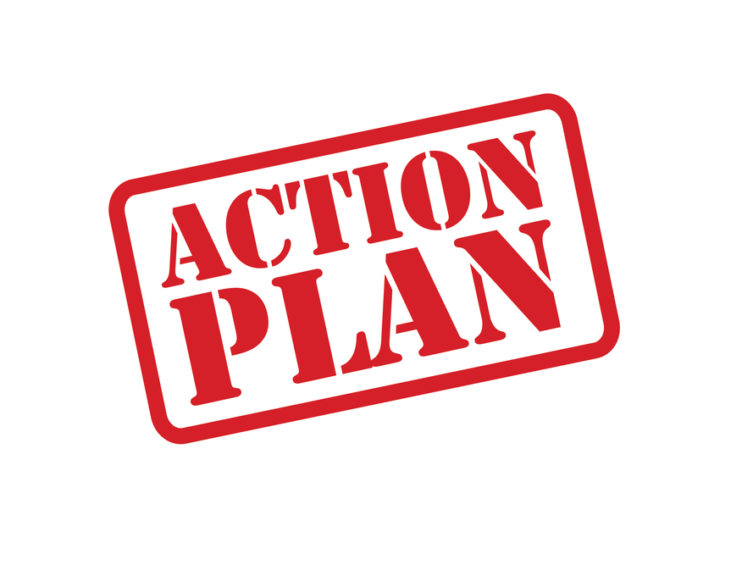Taking Action
All summer I’ve been thinking about how I need to start doing some simple strength training exercises. The more I read about muscle loss during your 40s, 50s and 60s, the more I realize it’s my actions now that set me up for success later. (And in an interesting side note, recent research has shown strength training increases your long-term memory skills – bonus!)
The question is: if I know this is so important, why don’t I do it? There’s lots of reasons, but here are some common reasons we don’t act on our goals:
1) Honestly, the pain point isn’t strong enough. I don’t act because I don’t feel an immediate consequence. For some of us, we don’t change because we can tolerate the discomfort of where we are, and it’s not worth the pain of improvement.
2) We don’t know our own motivations, so we create rewards that don’t actually feel like rewards.
3) We say we want to do things, but we never get concrete about the how. We keep everything at the theory level, not the application level.
Let’s look at each of these reasons briefly.
First, the pain point isn’t enough. I don’t lift weights like I should because weight training takes effort, and the effort doesn’t outweigh the consequences. So my arms are a little flabbier than last year. People still like me. I may not be thrilled, but the effort it would take to do regular strength training costs more than the pain of not doing anything at the moment.
Second, sometimes we don’t know our motivations. Gretchen Rubin has a great podcast on Harvard Business Review on motivations. She talks about four types of people.
1) Those who are internally motivated and who hold themselves accountable to themselves.
2) Those who need external motivation and who turn to outside people or events to mark their success. Think I need to lose 20 lbs by my class reunion or train for a 5K to run at all.
3) Those who are some combination of the first two. While this makes sense, this feels like a catch all category. We’re all probably some combination, however, we likely have some strong leanings toward the internal or external.
4) Those who are rebels who aren’t motivated by anything. These folks are particularly tough to manage or parent.
Why is this piece important? We need to know our own preferences to figure out what works for us. I’m internally motivated, but my husband is externally motivated. For example, when we bike in the summer, I do it because I choose to do it because it’s good for me. His most dedicated biking happens when he has a race or event he’s preparing for. Neither is right or wrong, but our reasons for why we bike create some friction between how and when we bike.
Third, I think the piece that keeps us from accomplishing our goals most often is we don’t get to the how of our actions. Recently I heard a speaker talk about using the 7 Hows to get us to be concrete in our action planning. It’s been a helpful tool the past few weeks.
The 7 Hows is a series of questions we ask ourselves about how will we get to our goal. We usually stop after the first or second how and never get to the actual action I can take today or tomorrow to make this happen. It’s that level of concrete action that actually makes our goals happen. Here’s my example:
My goal: My husband and I want to do more strength training.
1) How? By lifting more weights and signing up to do a regular strength program.
2) How? By selecting a program that works for our schedule.
3) How? By identifying the program and which days and times of the week work best to keep us working towards our goal.
4) How? Identifying 2 program options and identifying what we have going on in the next month and knowing when each of us is willing to put time into working out.
5) How? Determining I would do this in the a.m. but he doesn’t function in the morning so we need to select a time that works for us.
6) How? We choose to do this in the early evening right after dinner three nights a week.
7) How? Scheduling three evening on the calendar and not allowing other things to happen at that time.
It took me a while to identify all the things needed, but the 7 Hows got me to concrete steps I can take today or tomorrow to make this happen.
There’s a lot that goes into taking our goals from theory to reality. It’s important we understand where we are at in the process and how to move forward to concrete action. What will you do this week to get concrete about meeting your goals?
We’re working out tonight by the way…




Great perspective!
My wife ( my external motivator) and I will be meeting tonight to get the “How’s” confirmed about our new exercise program.
Thanks for the nudge…